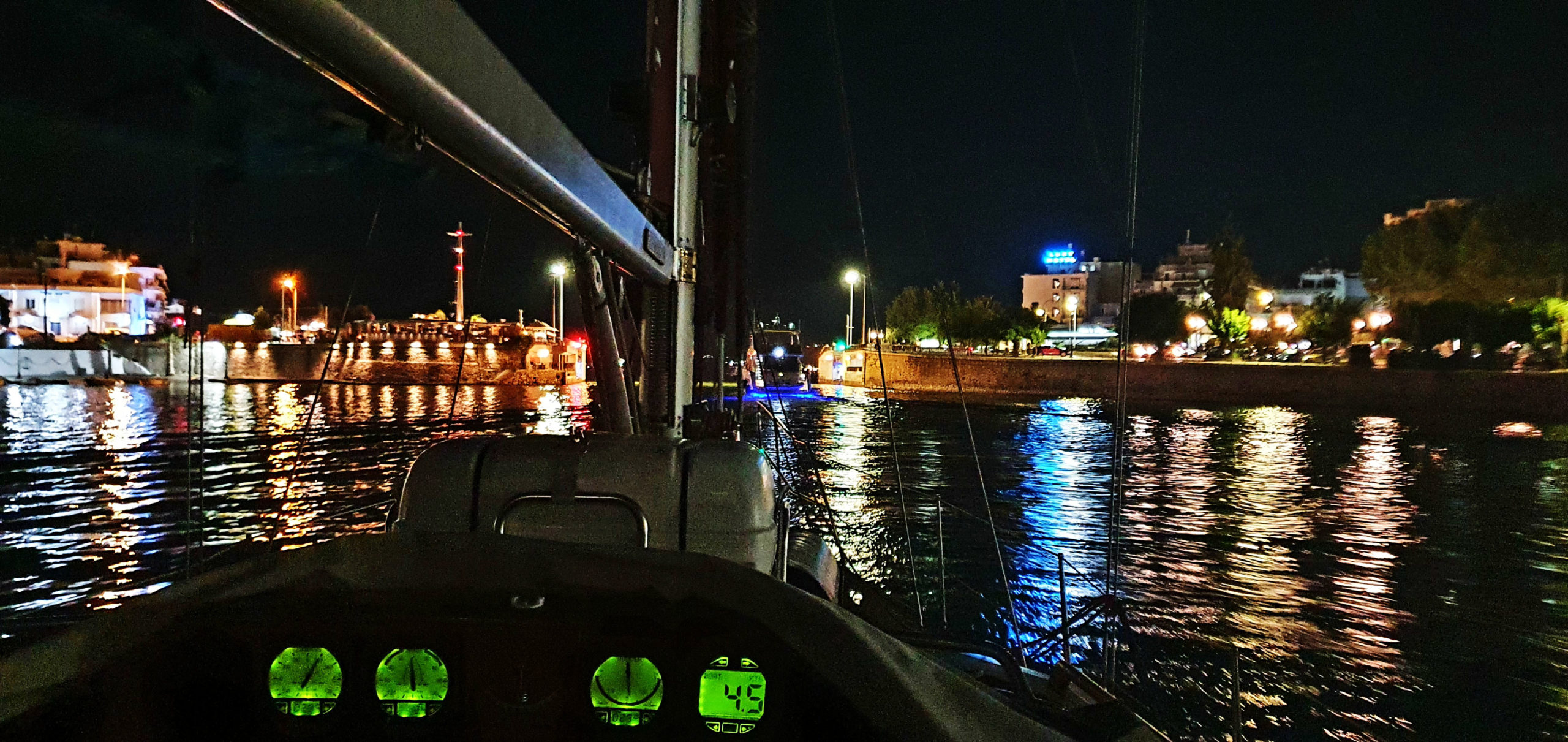When you travel, you make a fool of yourself. You stumble over a lack of language skills, unwritten rules, narcissistic pride of the locals. As long as it’s not about his bulging wallet, the traveller is far below. And when authorities are involved, only humility help.
“Ochi!” shouts the woman from the Coast Guard. “Ochi! No! No! No!” Reykja has just landed at the completely empty jetty of Chalkida, Euboea. I catch my breath. “No!” she shouts again and stands wide-legged. A reproach made flesh in bright sunlight: flashing Rayban sunglasses, pressed uniform, sparkling combat boots.
With “no” her English skills have largely exhausted themselves, which doesn’t really facilitate our conversation. Slowly it emerges: Only in front, at the old bridge of Chalkida, am I allowed to land. However, two boats are already moored there. She doesn’t care. “Ochi edo”, she calls again, “not here”.
It’s showtime
Euboea is a peninsula. At the narrowest point, a bridge leads to the mainland. The bridge is only opened once a day, sometime at night, never on Sundays. So I have to land in Chalkida and buy a transit permit. The space she is referring to is as good as occupied by the two ships, a strong current runs under the bridge from the front, offshore wind from the side.
“I can’t land here,” I shout. This doesn’t bother the Coast Guard policewoman for a second. “Edo! Here!” I throw her the foreline. She doesn’t know how to tighten it. Reykja turns across the pier. A distraught owner with a ball fender appears on the neighbouring boat. Anglers drop their rods and gather on the jetty. Thrown mooring lines, shouting, fits of rage, commands. Commands from the anglers, mind you, and tantrums. At the end, Reykja is moored, turned 180 degrees. I can buy the permit, the anglers continue fishing, the Coast Guard policewoman disappears inconspicuously into the office. Everyone is happy with the excitement of the day. I should wait at anchor, turn on my radio, be ready for passage from 9pm.
British cherry picking
Those who travel must always expect to make fools of themselves. All the more so when it comes to authorities. Besides me, the skipper of the British luxury yacht also finds out.
At half past eight he reports by radio, polished English, professional radio language, unspoken signals of superiority of the ex-world power at sea. “My agent has booked passage. ETA (expected time of arrival) at two one o’clock.” The Greek port authority confirms taciturnly, in poor English. Five to nine, another radio message: he will be there in five minutes. The port authority confirms. Half past nine: When can he expect passage? He is told to listen to his radio and will be called. It is hot and dark, I fall asleep. Half past one I wake up. The luxury yacht on the radio: May he politely ask when he can expect passage? The port authority: He should listen to his radio and will be called.
Finally, at three o’clock, the call.
Didn’t the Port Authority already know at nine that it was going to be late? Doesn’t it do this every day? Can’t the current under the bridge be calculated?
Now everything has to happen very quickly. While I clear my mattress out of the cockpit, start the engine and pull up the anchor, the luxury yacht is already being called. And since she is not yet ready, the next yacht is called.
A revenge from the taciturn port authorities?
Swiss cherry picking
This is not my only contact with the Greek Coast Guard. As a Swiss yacht, a non member of the EU, Reykja has to get an entry stamp and later a departure stamp in her transit log in every port. At the Coast Guard. Their policemen are as different as the weather. Some send me away because they don’t have time at the moment. Others check me in under the door. The third take half an hour because he photocopys all the documents. Very attentive ones notice that customs has entered a heading incorrectly. Others offer me a chair. And once an official warns me to sail because the wind is blowing at force six.
I try to practise professionalism: being obliging, never taking the initiative, not commenting on anything, not wanting to make friends. Sometimes this works better and sometimes worse. Once, I burst my collar because the Coast Guard sends me to customs and customs sends me to the Coast Guard. And lo and behold, the Coast Guard policewoman is more professional than I am, remains calm and explains the problem to me. Voilà.

